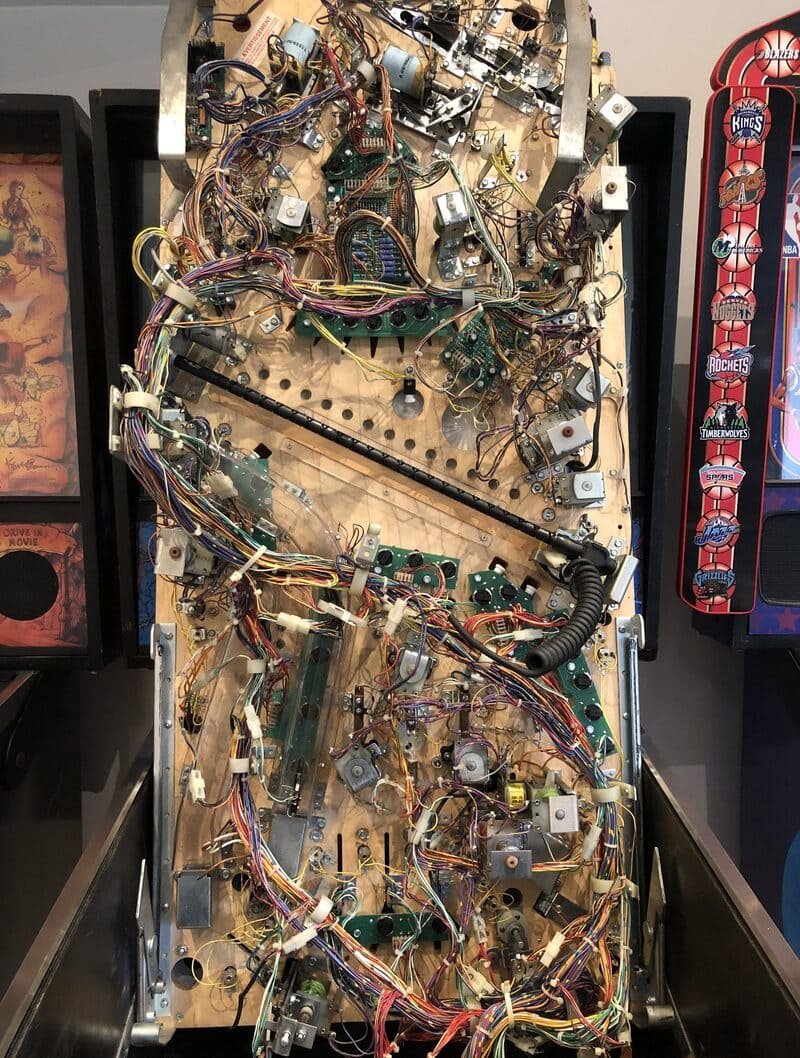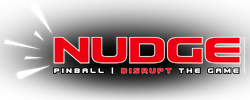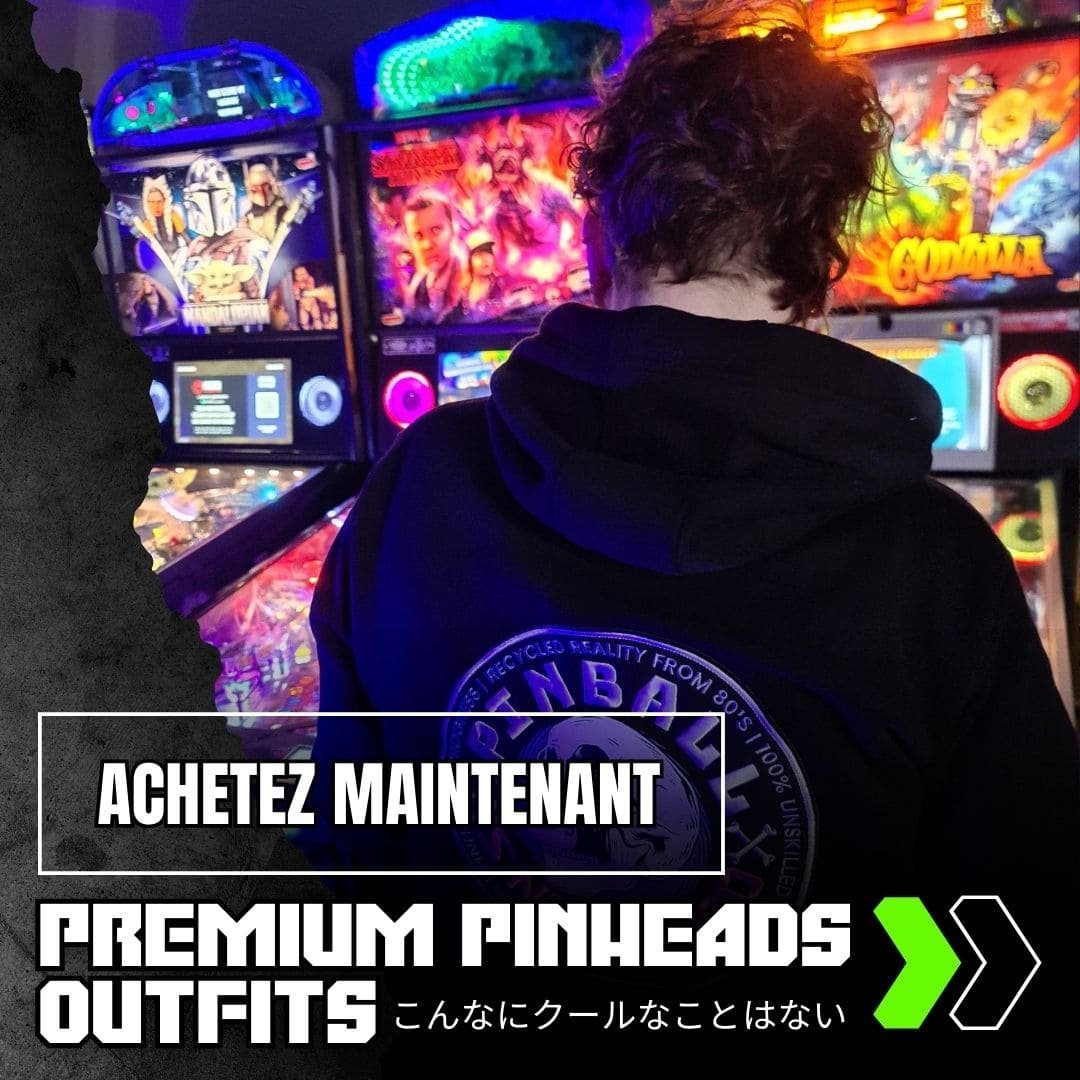First and foremost, this article is for people who already have an idea of what pinball machine or machines they are interested in. Otherwise we have an article to help you choose your first pinball machine.
Here, we’ll walk you through the purchase process, and avoid the pitfalls along the way. Let’s start with the machine itself and its history.
Sommaire
- 1 Where did this pinball machine come from?
- 2 Revised or renovated pinball machines, what’s the difference?
- 3 Buy from a professional
- 4 Buying from a private individual
- 5 What to check in a used pinball machine ?
- 6 Examine the playfiel and inserts
- 7 Pitfalls to avoid when buying a used pinball machine
- 8 Should you negotiate the price of your pinball machine, and how?
- 9 Pinball Exchange and Balance
- 10 Firmness, politeness and rigor
Where did this pinball machine come from?
Judging the condition of a machine depends on the context in which it was used. There are generally two types of use.
Home Use Only (HUO)
You will regularly come across this term in advertisements. It means that the machine was only used at home. Concretely, the machine was in a gameroom, a garage or a living room, and only the household and its entourage played it. This is very common, if not the norm, for machines made after the year 2000.
This is usually good news about the condition of the machine, as it is rare that a home pinball machine has been rinsed by its owner. However, the owner will know this and will adjust the selling price accordingly.
Operating pinball machines
Conversely, an operating pinball machine has been in a public place. If it is a machine from the 90’s, it may have had two lives: in a bar or arcade and then in a private home. Time will have taken its toll, the case will probably be marked, the mechanics and electronics will probably have suffered. It is even possible that the machine still bears the scars of the summary repairs made a long time ago. Many breakdowns were repaired with a paper clip and tape in those days…
The condition of the pinball will certainly be better if the operation is more recent. First of all, because people don’t smoke in public places anymore, so our machines are better off, but also because unfortunately less people play it. And of course, the game is less aged.
As you can see, you can’t expect the same quality from a pinball machine from the 90s as from a Stern HUO from 5 years ago. And neither you nor the seller should try to match the price of one with the other. Unless there is an exceptional renovation, of course!
Revised or renovated pinball machines, what’s the difference?
This brings us to a terminology often used by professionals that can lead to confusion. A refurbished pinball machine has been checked and is considered fully functional. All interactive or lighted elements are operational. On the other hand, the aesthetics can clearly leave something to be desired:
- Dirty playfield
- Damaged box
- Worn, sun-washed or scratched decals
It’s like a car inspection: it can be an old crust, the only thing that is judged is its functioning.
On the other hand, a refurbished pinball machine has received some attention to get a second youth. The list is long, but here are some examples of pinball restoration:
- the incandescent bulbs were replaced by leds
- the rubber bands have been renewed
- the cash register stickers have been replaced
- the Dot Matrix screen has been changed to color
- The sound system has been improved
- Some mechanical and electronic components have been replaced

A properly refurbished pinball machine can be called “restored”, like a masterpiece that has been worked on by conservators. Make sure you know the difference between a reconditioned and a refurbished pinball machine, otherwise you may be disappointed when you get to the machine.
Buy from a professional
If you’re thinking of buying your used pinball machine from a professional, it’s because you value the “security” that they provide. But having an official company doesn’t mean being a good professional. To be sure of its quality, two methods complement each other.
First of all, talk to the professional and ask him questions about the condition of the machine and the revision he has done. But above all, check that he respects the regulations on used goods.
And an installed professional will also be able to repair your machine, so make sure that he has repairers, or that he is able to intervene himself. If not, you can seriously doubt the quality of his review.
Second, find out about the seller from other buyers or on the Internet. However, keep in mind that not all buyers are honest. As with any purchase, look at the number of reviews and the recurrence of qualities and defects cited in the comments.
Buying from a private individual
If you buy from a private individual, it’s either because the pinball machine of your dreams is not available from a professional, or because the price is significantly lower. Otherwise, what’s the point? Checking the honesty of a private individual is not easy, and don’t rely on him for repairs.
Buying an object worth several thousand dollars from a private individual is reserved for a well-informed public, who will know how to deal with malfunctions and non-compliance with the seller’s commitments.
What to check in a used pinball machine ?
The first thing to do once in front of the machine, and before paying, is to go around it.
Walk around the machine
Examine all sides of the pinball machine to see the condition of the decals and the wood that makes up the case. It would be a shame to miss a large crack caused by careless transport.

Playing the pinball
In the same way that you drive around in a car before taking out your wallet, you play a few games on a pinball machine that you want to acquire. The goal is not to score but to send the ball everywhere to make sure that all the pieces on the board are working properly.
Check the screen
As you play, take a look at the screen to make sure it is free of defects. On a Dot Matrix screen, make sure all the pixels light up. On an LCD screen, make sure it’s not cracked.

Examine the playfiel and inserts
Before or after playing, take a close look at the board, and don’t hesitate to ask to remove the glass if you have any doubts about a component. Look at the light on the inserts, and check the level of wear on the board, whether it’s dimpling (a small hammering effect that is inevitable) or worn wood around the scoops (the holes that sometimes need to be aimed at) in particular.

Electronic pinball machines usually have a diagnostic menu. This can automatically inform you of a problem, and allow you to test each interactive element one by one. Learn about the testing features of the machine you want.

Looking under the playfield
Once the exterior is examined, it’s time to lift the board. Let the current owner do this, as it will avoid any “you broke it!” disputes. If you know anything about electricity, you’ll easily spot the minor repairs.
Have the backglass opened as well, behind which you will find the electronic components. Look for rough soldering and blackened wiring.
Since all of this can take time, let the seller know how much time you’ll need and that their assistance will be required.

Pitfalls to avoid when buying a used pinball machine
Here are a few rules you should absolutely stick to:
Do not send a deposit
NEVER! Asking for a deposit for a used pinball machine is a typical scam on market places. And pinball machines lend themselves perfectly to scams: we’re talking about an electrical or electronic machine worth several thousand dollars, the sale of which is not particularly well supervised (not like that of a car, in any case).
Do not pay any money until you have seen the machine and met the seller. And if the seller takes care of the transport to your home, do not pay the full amount until after delivery.
Don’t give in to pressure and don’t buy without seeing
The pinball market is tight. A well-maintained machine will sometimes find a buyer even before the ad appears. Sellers know this and can both raise the stakes between interested parties, but also put pressure to speed up the sale. It’s the law of the market, there’s nothing you can do about it.
But this is no reason to have conditions imposed on you that are borderline dishonest. Don’t compromise on having seen and tested the machine, don’t accept terms of settlement that put you in a risky situation. It is better to refuse the purchase of a pinball machine than to lose money.
Receive the pinball machine at a suitable location
What is a suitable place to examine a pinball machine?
- A place where there are electrical outlets to turn on the machine, for one thing.
- But also a place that is well lit. Beware of a darkened space that, whether intentionally or not, can hide defects.
- And finally, a place where you will have plenty of time to do your checks.
Ask for the keys to your pinball machine
The sale went well but you forgot to ask for the keys! And now you have to chase after a seller who is in no hurry at all. There are two keys to get: the coindoor key and the backglass key. Think about it!

Should you negotiate the price of your pinball machine, and how?
As the professionals say, the right price is the one that the buyer and seller agree on. No one is holding a knife to the throat to complete the transaction, so don’t pay attention to the chagriners who cry over the money they paid. They agreed to the terms of the contract, and besides, the complainers are rarely newbies who have been taken advantage of.
But should you negotiate? Yes, if you have solid arguments to show that the object is overvalued. On the other hand, if the seller does not listen to reason, let him mourn the price he has considered, follow the evolution of his ad and show up again when the positions have converged. And if someone passes you by, that’s the game, no need to be bitter or aggressive.
Pinball Exchange and Balance
Reserved for lucky pinball machine owners, the exchange is a way to renew your gameroom without the expense of a professional. The precautions regarding the condition of the machine mentioned above are still valid.
When the machines are not valued at the same amount, it is advisable to compensate with a sum of money. This is the difference in value between the two pinball machines. The estimation of the balance is necessarily the subject of a negotiation taking into account the criteria already mentioned:
- The condition of the machine
- Its value, with all that this implies in terms of subjectivity
A negotiation should not end in a fist fight: the only way to abandon a bad negotiation is to decline politely.
Firmness, politeness and rigor
We’ve covered everything you need to know about buying a used pinball machine. Now let’s sum it up in 3 words:
- Firmness on the conditions of the transaction (no down payment, see the pinball before buying, lit and electrified transaction place)
- Rigor in the verification of the pinball
- Politeness in trading, regardless of the outcome
With all this, you will avoid unpleasantness and buy serenely.

